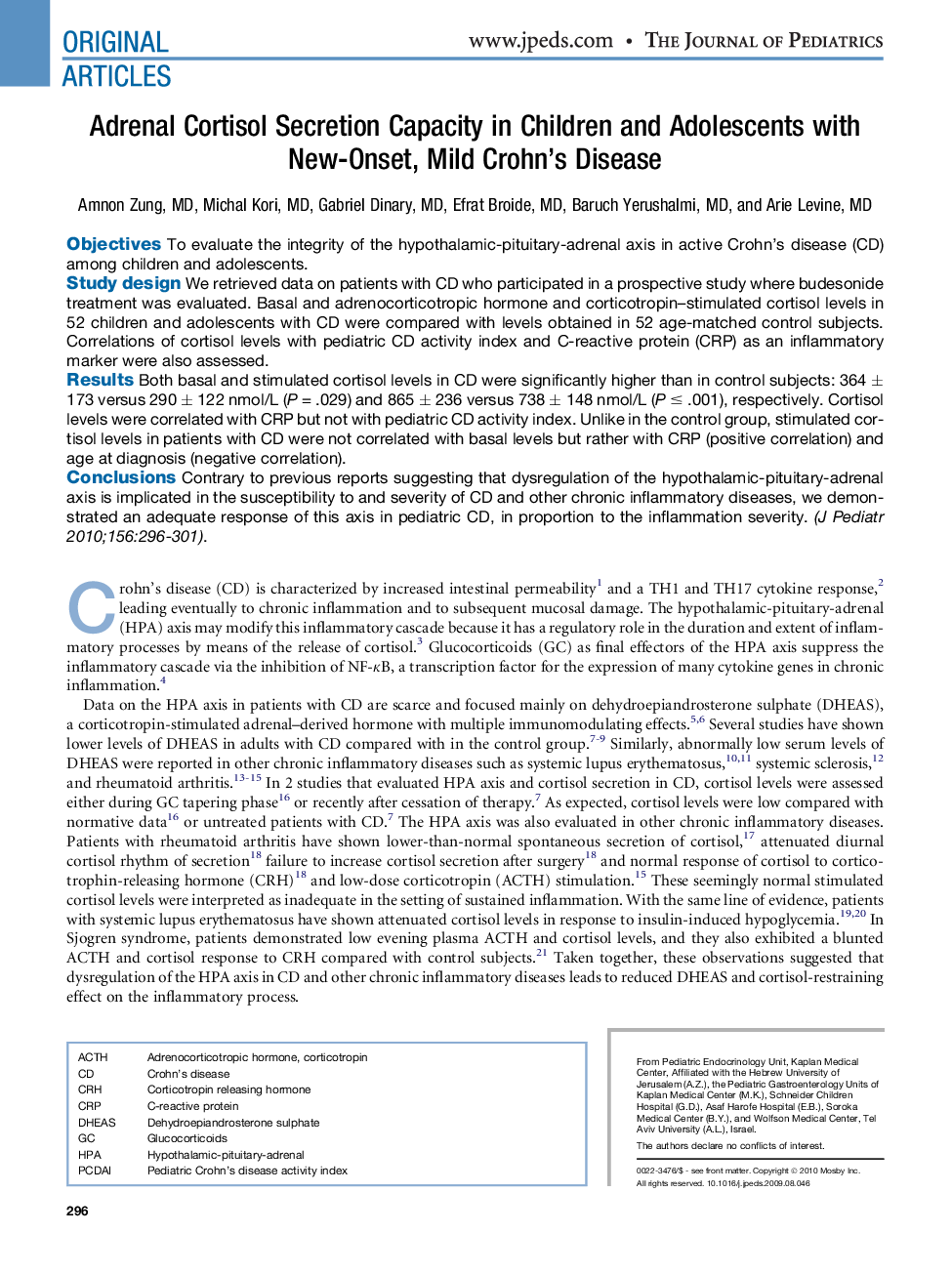| Article ID | Journal | Published Year | Pages | File Type |
|---|---|---|---|---|
| 4165888 | The Journal of Pediatrics | 2010 | 6 Pages |
ObjectivesTo evaluate the integrity of the hypothalamic-pituitary-adrenal axis in active Crohn's disease (CD) among children and adolescents.Study designWe retrieved data on patients with CD who participated in a prospective study where budesonide treatment was evaluated. Basal and adrenocorticotropic hormone and corticotropin–stimulated cortisol levels in 52 children and adolescents with CD were compared with levels obtained in 52 age-matched control subjects. Correlations of cortisol levels with pediatric CD activity index and C-reactive protein (CRP) as an inflammatory marker were also assessed.ResultsBoth basal and stimulated cortisol levels in CD were significantly higher than in control subjects: 364 ± 173 versus 290 ± 122 nmol/L (P = .029) and 865 ± 236 versus 738 ± 148 nmol/L (P ≤ .001), respectively. Cortisol levels were correlated with CRP but not with pediatric CD activity index. Unlike in the control group, stimulated cortisol levels in patients with CD were not correlated with basal levels but rather with CRP (positive correlation) and age at diagnosis (negative correlation).ConclusionsContrary to previous reports suggesting that dysregulation of the hypothalamic-pituitary-adrenal axis is implicated in the susceptibility to and severity of CD and other chronic inflammatory diseases, we demonstrated an adequate response of this axis in pediatric CD, in proportion to the inflammation severity.
